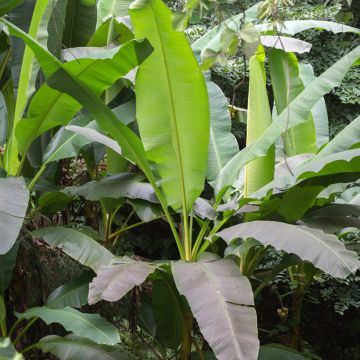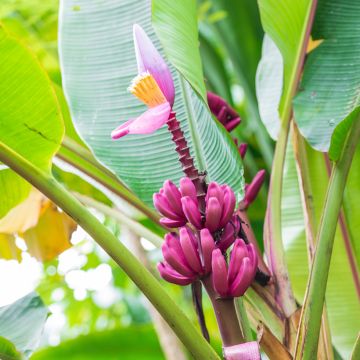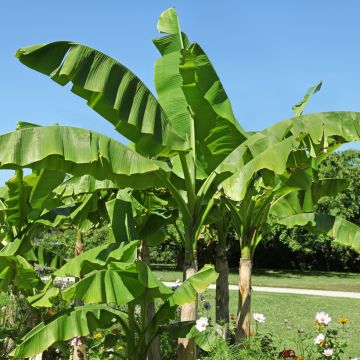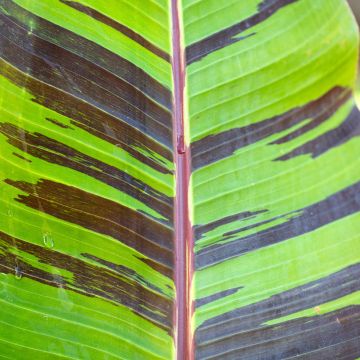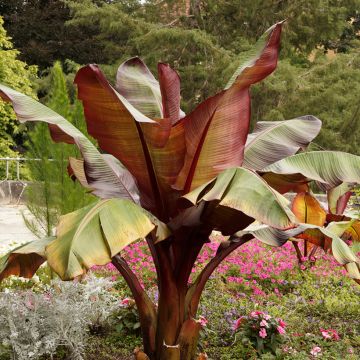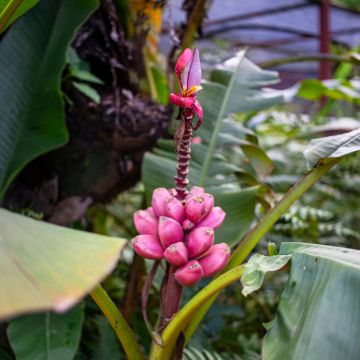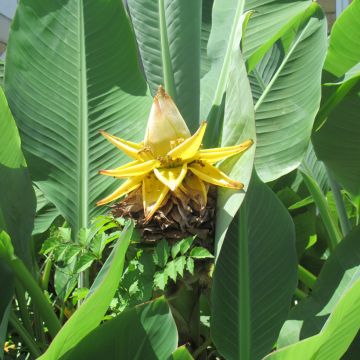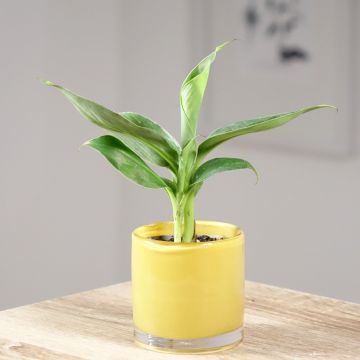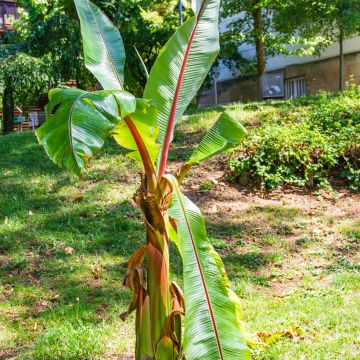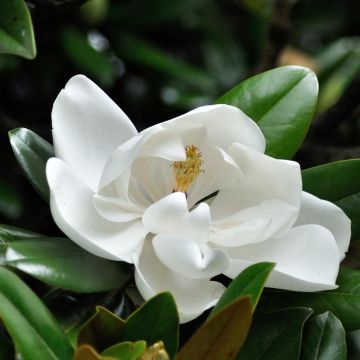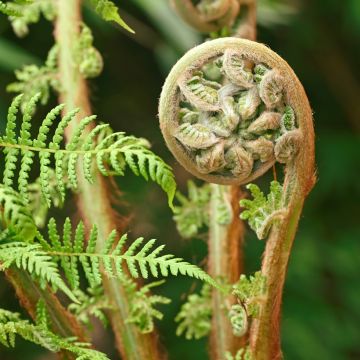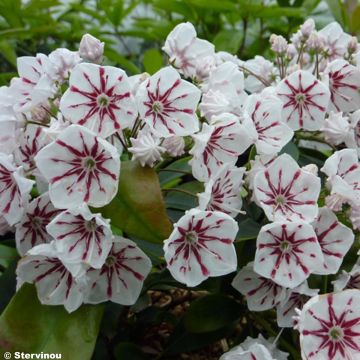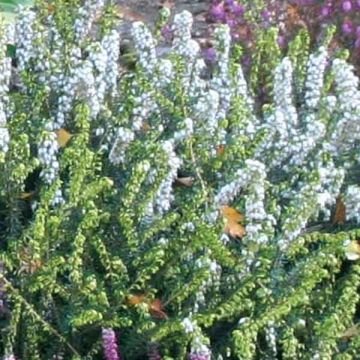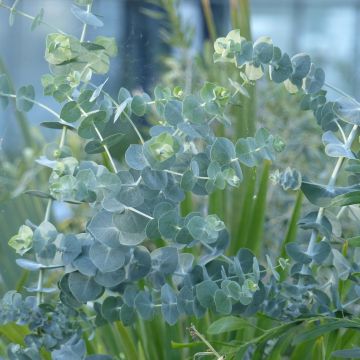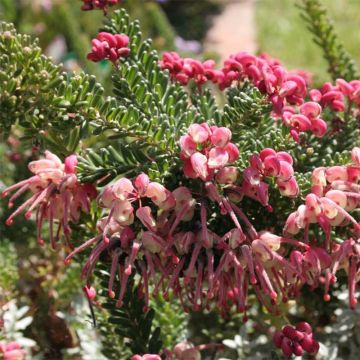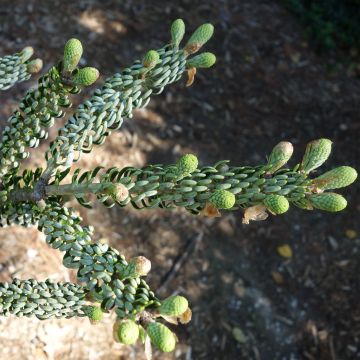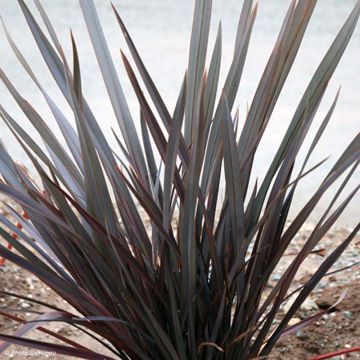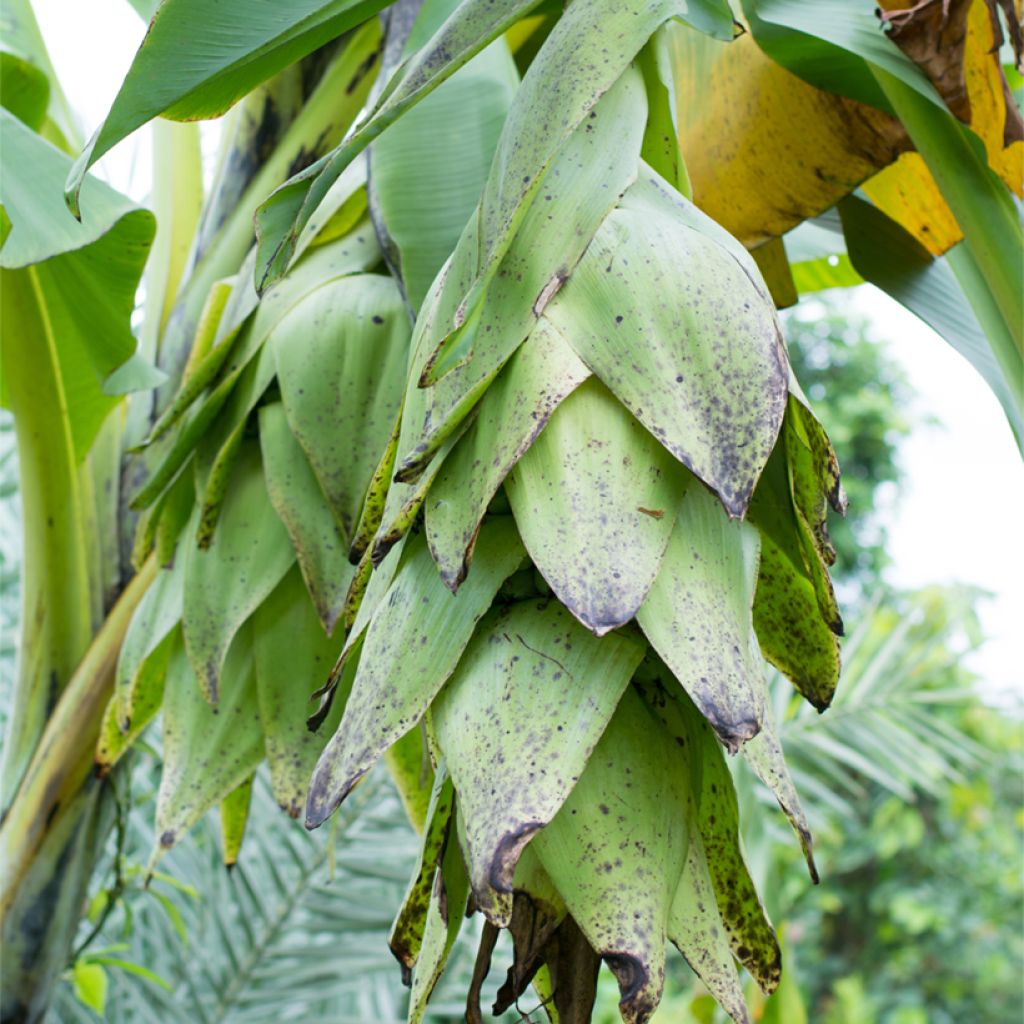

Ensete glaucum - Snow Banana
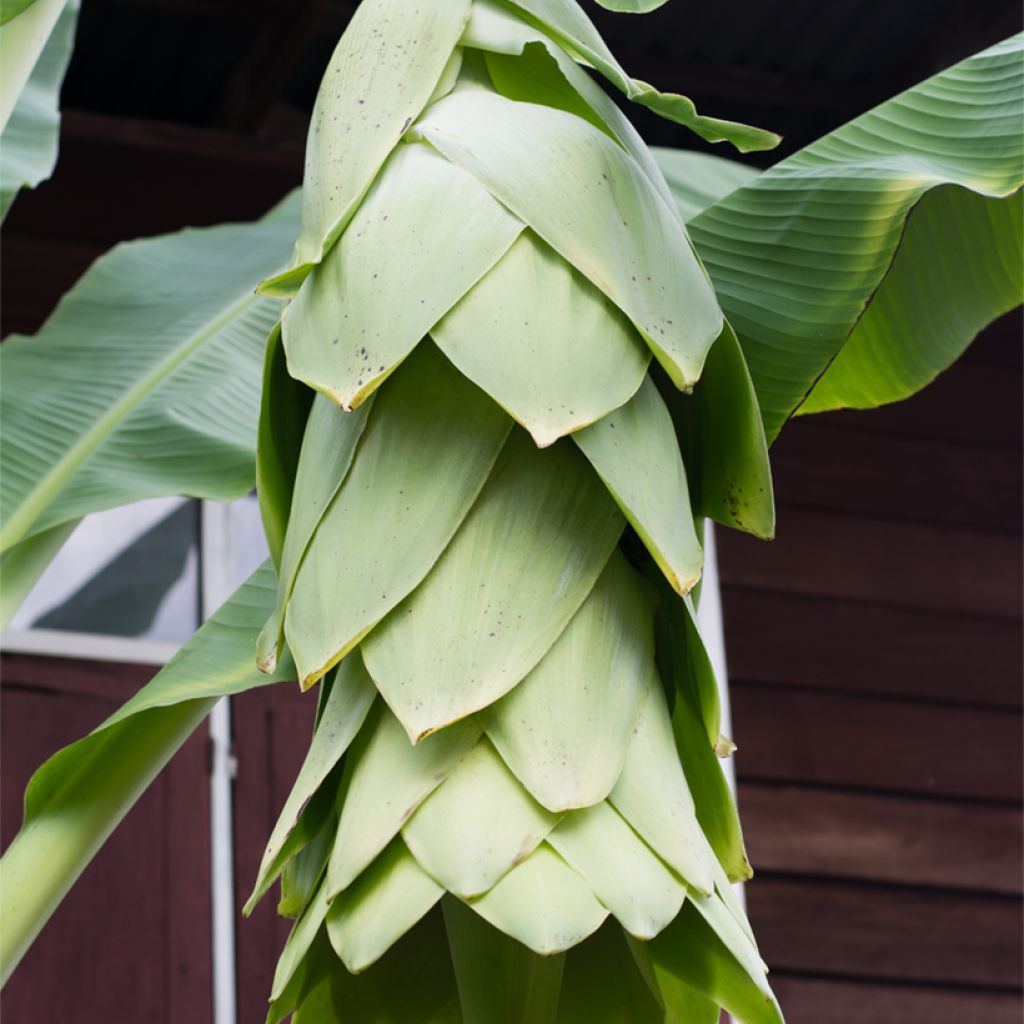

Ensete glaucum - Snow Banana
Ensete glaucum - Snow Banana
Ensete glaucum
Snow Banana, Wax Banana
Special offer!
Receive a €20 voucher for any order over €90 (excluding delivery costs, credit notes, and plastic-free options)!
1- Add your favorite plants to your cart.
2- Once you have reached €90, confirm your order (you can even choose the delivery date!).
3- As soon as your order is shipped, you will receive an email containing your voucher code, valid for 3 months (90 days).
Your voucher is unique and can only be used once, for any order with a minimum value of €20, excluding delivery costs.
Can be combined with other current offers, non-divisible and non-refundable.
Home or relay delivery (depending on size and destination)
Schedule delivery date,
and select date in basket
This plant carries a 24 months recovery warranty
More information
We guarantee the quality of our plants for a full growing cycle, and will replace at our expense any plant that fails to recover under normal climatic and planting conditions.
Would this plant suit my garden?
Set up your Plantfit profile →
Description
Ensete glaucum, also known as the Snow Banana, is a large herbaceous plant that can reach several metres high. It is extremely decorative with its large, long leaves that have a blue-green hue and its bottle-shaped base. With rapid growth in fertile and moist soil, its tropical silhouette will be a strong visual focal point in an exotic-inspired flower bed. This banana tree can be planted in the ground only in regions with particularly mild winters.
Ensete belongs to the Musaceae family, which is mainly composed of Musa (or true bananas) and the beautiful Golden Lotus, or Musella lasiocarpa. While the Musa genus has about sixty species, there are only seven species in Ensete, which closely resemble true bananas. Less common than the Abyssinian banana tree (Ensete ventricosum), some cultivars of which are used for ornamental purposes, Ensete glaucum is native to East Asia (Nepal, Vietnam, China, Thailand, Myanmar). It grows in the mid-mountain regions at altitudes ranging from 800 to 2700 metres, which explains its relative hardiness (to approximately -4°C).
This is a plant with tuberous rhizomes, mainly propagated by sowing, as the plants do not produce suckers and therefore cannot be divided. Like other Musaceae, the Ensete does not form a trunk, but what is called a pseudostem, which is a rigid structure formed by the sheaths of the leaves clustered together. This pseudostem is flared at the base, or even swollen in some specimens, similar to bottle palms, and is covered to varying degrees with a whitish bloom. The leaves are very large and elongated, reaching a length of 1.40 to 1.80 metres, with a width of 35 to 50 cm. Carried by petioles about forty centimetres long, they stand upright in the centre and gracefully arch towards the periphery, creating a spectacular volume of vegetation. This Snow Banana can reach a height of 4 to 5 metres, with a spread of 3 to 4 metres. The foliage is a beautiful bright green with blue-green highlights, and the cluster of leaves, firmly anchored on the widened base of the pseudostem, gives the plant a majestic appearance.
The flowering, rare in our climate, is equally impressive. The large green flowers, hanging downwards, consist of a central axis adorned with 10 to 20 bracts arranged in a spiral. In its native regions, the cylindrical flowering of this Ensete can exceed 2 metres long and then produce blackish-purple or grey-green fruits resembling bananas, measuring 9 cm in length and 3.5 cm in diameter. They are dry and inedible and contain large, round, black seeds, 1.2 cm in diameter. The plant is monocarpic and dies after fruiting.
Ensete glaucum is a great choice for enthusiasts of exotic plants who have a garden in a mild climate, with infrequent and mild frost. You can easily create a tropical scene by creating a flower bed and adding other plants with distinctive silhouettes. Syagrus romanzoffiana, with its coconut tree-like appearance, will fit perfectly, as this fast-growing palm tree can exceed 10 metres high and has an equally exotic silhouette as your Ensete. Place Strelitzias at their base, the famous Bird of Paradise plants with flowers recognisable for their unique design and vibrant, eye-catching colours. Hedychium is also a genus rich in species and varieties, with exuberant foliage and refined flowers in long white, yellow, or orange spikes, which fit well in a tropical scene.
Report an error about the product description
Ensete glaucum - Snow Banana in pictures


Plant habit
Flowering
Foliage
Botanical data
Ensete
glaucum
Musaceae
Snow Banana, Wax Banana
Musa glauca, Ensete giganteum, Musa nepalensis
Southeast Asia
Other Musa - Banana tree
View all →Planting and care
Ensete glaucum should be grown in full sun, in rich, moist soil, well-drained for winter, as it is equally sensitive to waterlogged soils in cold periods as it is to drought in summer. The hardiness of this species is approximately -6°C under good growing conditions, which limits its planting in open ground to mild areas of the Atlantic and Mediterranean coastlines. It is theoretically possible to grow it in a container, but its size makes the operation difficult when it comes to bringing it indoors for winter. Choose a location sheltered from the wind to prevent damage to its large leaves. Add planting compost to the existing soil, organic fertiliser, and a layer of draining materials (gravel or other) at the bottom of the planting hole. Soak the root ball in a bucket before placing it in the hole. Fill in around it and water abundantly. Ensure that the soil remains moist in summer by watering regularly to promote its growth. At the end of the season, cut the leaves and wrap the base with a non-woven fabric to protect it from the cold.
Planting period
Intended location
Care
This item has not been reviewed yet - be the first to leave a review about it.
Similar products
Haven't found what you were looking for?
Hardiness is the lowest winter temperature a plant can endure without suffering serious damage or even dying. However, hardiness is affected by location (a sheltered area, such as a patio), protection (winter cover) and soil type (hardiness is improved by well-drained soil).

Photo Sharing Terms & Conditions
In order to encourage gardeners to interact and share their experiences, Promesse de fleurs offers various media enabling content to be uploaded onto its Site - in particular via the ‘Photo sharing’ module.
The User agrees to refrain from:
- Posting any content that is illegal, prejudicial, insulting, racist, inciteful to hatred, revisionist, contrary to public decency, that infringes on privacy or on the privacy rights of third parties, in particular the publicity rights of persons and goods, intellectual property rights, or the right to privacy.
- Submitting content on behalf of a third party;
- Impersonate the identity of a third party and/or publish any personal information about a third party;
In general, the User undertakes to refrain from any unethical behaviour.
All Content (in particular text, comments, files, images, photos, videos, creative works, etc.), which may be subject to property or intellectual property rights, image or other private rights, shall remain the property of the User, subject to the limited rights granted by the terms of the licence granted by Promesse de fleurs as stated below. Users are at liberty to publish or not to publish such Content on the Site, notably via the ‘Photo Sharing’ facility, and accept that this Content shall be made public and freely accessible, notably on the Internet.
Users further acknowledge, undertake to have ,and guarantee that they hold all necessary rights and permissions to publish such material on the Site, in particular with regard to the legislation in force pertaining to any privacy, property, intellectual property, image, or contractual rights, or rights of any other nature. By publishing such Content on the Site, Users acknowledge accepting full liability as publishers of the Content within the meaning of the law, and grant Promesse de fleurs, free of charge, an inclusive, worldwide licence for the said Content for the entire duration of its publication, including all reproduction, representation, up/downloading, displaying, performing, transmission, and storage rights.
Users also grant permission for their name to be linked to the Content and accept that this link may not always be made available.
By engaging in posting material, Users consent to their Content becoming automatically accessible on the Internet, in particular on other sites and/or blogs and/or web pages of the Promesse de fleurs site, including in particular social pages and the Promesse de fleurs catalogue.
Users may secure the removal of entrusted content free of charge by issuing a simple request via our contact form.
The flowering period indicated on our website applies to countries and regions located in USDA zone 8 (France, the United Kingdom, Ireland, the Netherlands, etc.)
It will vary according to where you live:
- In zones 9 to 10 (Italy, Spain, Greece, etc.), flowering will occur about 2 to 4 weeks earlier.
- In zones 6 to 7 (Germany, Poland, Slovenia, and lower mountainous regions), flowering will be delayed by 2 to 3 weeks.
- In zone 5 (Central Europe, Scandinavia), blooming will be delayed by 3 to 5 weeks.
In temperate climates, pruning of spring-flowering shrubs (forsythia, spireas, etc.) should be done just after flowering.
Pruning of summer-flowering shrubs (Indian Lilac, Perovskia, etc.) can be done in winter or spring.
In cold regions as well as with frost-sensitive plants, avoid pruning too early when severe frosts may still occur.
The planting period indicated on our website applies to countries and regions located in USDA zone 8 (France, United Kingdom, Ireland, Netherlands).
It will vary according to where you live:
- In Mediterranean zones (Marseille, Madrid, Milan, etc.), autumn and winter are the best planting periods.
- In continental zones (Strasbourg, Munich, Vienna, etc.), delay planting by 2 to 3 weeks in spring and bring it forward by 2 to 4 weeks in autumn.
- In mountainous regions (the Alps, Pyrenees, Carpathians, etc.), it is best to plant in late spring (May-June) or late summer (August-September).
The harvesting period indicated on our website applies to countries and regions in USDA zone 8 (France, England, Ireland, the Netherlands).
In colder areas (Scandinavia, Poland, Austria...) fruit and vegetable harvests are likely to be delayed by 3-4 weeks.
In warmer areas (Italy, Spain, Greece, etc.), harvesting will probably take place earlier, depending on weather conditions.
The sowing periods indicated on our website apply to countries and regions within USDA Zone 8 (France, UK, Ireland, Netherlands).
In colder areas (Scandinavia, Poland, Austria...), delay any outdoor sowing by 3-4 weeks, or sow under glass.
In warmer climes (Italy, Spain, Greece, etc.), bring outdoor sowing forward by a few weeks.






























